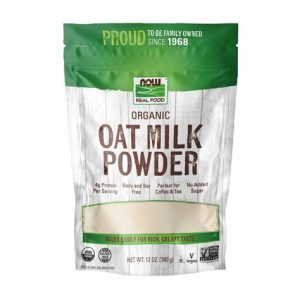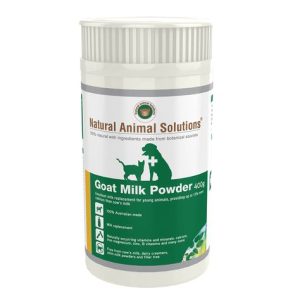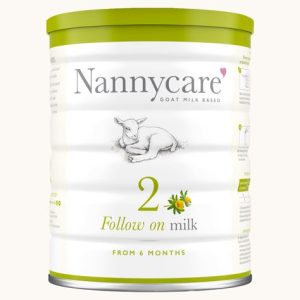Protein powder is a popular supplement among athletes and fitness enthusiasts. Whey protein powder, derived from cow’s milk, has been the dominant choice for many years. However, goat milk protein powder is emerging as a potential alternative.
This article explores goat milk protein powder, its characteristics, and some factors to consider if you’re curious about this supplement.
Understanding Goat Milk Protein Powder
Goat milk protein powder is made by drying and grinding goat milk, concentrating the protein content into a powder form. Similar to whey protein powder, it is a source of protein and amino acids, the building blocks of muscle.
Here’s a breakdown of the process:
-
Goat Milk Source: The quality of the goat milk protein powder depends on the quality of the milk source. Look for brands that use milk from goats raised on a healthy diet and without the use of antibiotics or growth hormones.
-
Processing Methods: There are different methods for processing goat milk protein powder. Some methods involve gentle processing at low temperatures to help preserve nutrients.
-
Powder Variations: Goat milk protein powder can come in flavored or unflavored varieties. Unflavored is the most versatile option, as you can add it to smoothies, yogurt, or baked goods.
It’s important to note that more research is needed to fully understand the long-term effects and potential health benefits of goat milk protein powder.

What to Consider with Goat Milk Protein Powder
Here are some factors to consider before incorporating goat milk protein powder into your diet:
Consult a Doctor or Dietician:
A doctor or registered dietician can help you determine if protein supplementation is right for you, considering your overall diet and goals.
Taste and Texture:
Goat milk protein powder may have a slightly different taste and texture than whey protein powder. Try a small serving before committing to a large tub.
Regulation and Quality:
Goat milk protein powder is a relatively new supplement, and regulations may vary. Choose reputable brands that prioritize quality control and independent testing.
Not a Magic Bullet:
Goat milk protein powder, like any supplement, should be used in conjunction with a healthy diet and exercise routine.
By considering these factors, you can make an informed decision about whether goat milk protein powder is a good fit for you.

The Takeaway on Goat Milk Protein Powder
Goat milk protein powder is a new option in the sports and wellness supplement world. While whey protein powder remains the most popular choice, goat milk protein powder offers potential advantages for some people, such as easier digestion.
More research is needed to confirm the long-term benefits of goat milk protein powder. If you’re considering trying it, consult with a doctor or dietician first, and choose a high-quality brand.
This article provides a brief overview of goat milk protein powder. Remember, it’s important to do your own research and consult with a healthcare professional before starting any new supplements.

Goat Milk Protein Powder: Potential Benefits and Research
Let’s delve deeper into the potential benefits of goat milk protein powder:
-
Easier Digestibility: Goat milk protein powder may be easier to digest for people with lactose intolerance or whey protein sensitivity. Goat milk has a different protein structure than cow’s milk, potentially making it less irritating for some people.
-
Nutrient Content: Goat milk protein powder is a good source of protein and essential amino acids. It also contains minerals like calcium, potassium, and phosphorus.
-
Potential Allergen-Friendly: For those with a cow’s milk allergy, goat milk protein powder may be a tolerated alternative source of protein. However, it’s important to consult with a doctor before trying goat milk protein powder if you have a milk allergy.
-
Slower Protein Release: Some studies suggest that goat milk protein powder may be absorbed slightly slower than whey protein powder. This could be beneficial for sustained muscle recovery.

It’s important to remember that these are potential benefits. More research is needed to definitively confirm these claims.
Here are some reputable sources you can explore to learn more about ongoing research into goat milk protein powder:
- National Institutes of Health (.gov) https://www.nih.gov/)
- National Center for Complementary and Integrative Health (.gov) https://www.nccih.nih.gov/)
These websites provide information from various scientific studies and clinical trials. They can be a good starting point for your research journey.
Goat Milk Protein Powder: Comparing to Whey Protein
Many people considering goat milk protein powder wonder how it stacks up against the long-time favorite, whey protein powder. Here’s a breakdown of some key points for comparison:
-
Source: Whey protein powder comes from whey, a liquid byproduct of cheese production made from cow’s milk. Goat milk protein powder, as the name suggests, is derived from goat milk.
-
Digestion: Whey protein is generally well-tolerated by most people. However, some individuals with lactose intolerance or whey protein sensitivity may experience digestive discomfort. Goat milk protein powder may be easier for these individuals to digest due to the different protein structure in goat milk.
Other Benefits
Nutrient Profile: Both whey and goat milk protein powder are good sources of protein and essential amino acids. Whey protein powder is famous for its complete amino acid profile, containing all nine essential amino acids your body needs. Goat milk protein powder is also a good source of essential amino acids, but research is ongoing to determine its exact amino acid profile.
-
Absorption Rate: Whey protein powder is famous for its rapid absorption rate, making it a popular choice for post-workout recovery. Goat milk protein powder may have a slightly slower absorption rate, which some believe could be beneficial for sustained muscle recovery.
-
Taste and Texture: Whey protein powder comes in a wide variety of flavors and textures. Goat milk protein powder may have a slightly different taste and texture than whey protein powder, and flavor options may be more limited.

Ultimately, the best choice for you depends on your individual needs and preferences. If you have lactose intolerance or whey protein sensitivity, goat milk protein powder may be worth exploring. If you prioritize rapid protein absorption, whey protein powder might be a better fit.
Remember, it’s always a good idea to consult with a doctor or registered dietician before starting any new supplements. They can help you determine if protein supplementation is right for you and which type of protein powder might be most suitable for your goals.
